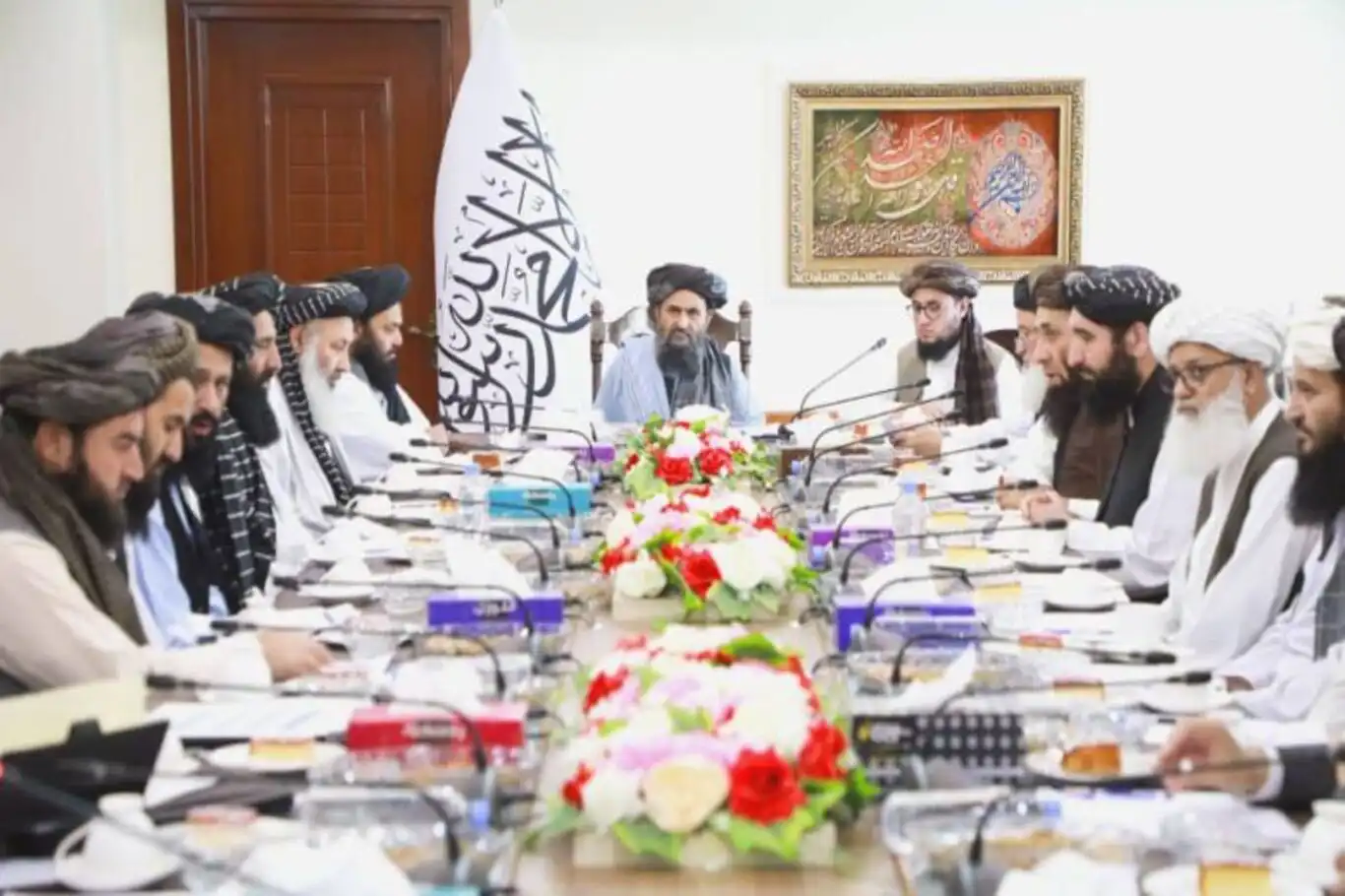Islamic Emirate approves bold economic plan, major infrastructure projects


The Islamic Emirate of Afghanistan has taken a significant step toward economic self-reliance and prosperity with the approval of a comprehensive national Economic Policy during a high-level meeting of the Economic Commission on Sunday.
Chaired by Deputy Prime Minister for Economic Affairs Mullah Abdul Ghani Baradar Akhund at the Marble Palace, the session marked a pivotal moment in Afghanistan’s pursuit of sustainable development under an Islamic economic framework.
The newly endorsed policy aims to transform Afghanistan into a thriving, self-sufficient nation by fostering a robust environment for investment, boosting domestic production and exports, creating jobs, and alleviating poverty. It emphasizes economic stability, efficient resource utilization, and a strengthened private sector as key pillars of national progress. “This policy will streamline coordination and empower our private sector to drive Afghanistan’s economic revival,” a commission official stated.
In a bid to expand critical infrastructure, the Commission directed the Ministry of Finance to allocate funds in the 1404 fiscal year for extending electricity access to 13 villages in Pul-e-Khumri, Baghlan province. The project, to be implemented by Da Afghan Breshna Sherkat, the national power utility, underscores the government’s commitment to improving rural living standards.
The meeting also saw the approval of two transformative commercial market projects. In Balkh province, a state-of-the-art eight-story commercial market featuring 878 shops will be constructed on land owned by the Ministry of Hajj and Religious Affairs. Valued at 740 million Afghanis, the project will be fully funded by private investors, highlighting the Islamic Emirate’s emphasis on public-private partnerships.
Similarly, Sar-e-Pul province will benefit from a new standard commercial market, developed with a 96 million Afghani investment. This initiative aims to enhance local trade and improve market accessibility, fostering economic growth in the region.
These decisions reflect the Islamic Emirate’s broader strategy to rebuild Afghanistan’s economy through infrastructure development, private sector engagement, and adherence to Islamic economic principles. By prioritizing job creation, poverty reduction, and economic stability, the government seeks to lay the foundation for a prosperous future.
The approved projects and policy signal Afghanistan’s determination to overcome challenges and emerge as a self-reliant nation, with officials expressing optimism about the transformative impact of these initiatives on the lives of ordinary Afghans. (ILKHA)
LEGAL WARNING: All rights of the published news, photos and videos are reserved by İlke Haber Ajansı Basın Yayın San. Trade A.Ş. Under no circumstances can all or part of the news, photos and videos be used without a written contract or subscription.
Türkiye is set to introduce a new law to bolster the development of Small Modular Reactors (SMRs) as part of its ambitious goal to achieve 20,000 megawatts of nuclear power capacity by 2050, Energy and Natural Resources Minister Alparslan Bayraktar announced Wednesday.
The Turkish Statistical Institute (TurkStat) announced on Wednesday that Türkiye's seasonally adjusted unemployment rate climbed to 8.6% in June 2025, marking a 0.2 percentage point increase from the previous month.
The Turkish Statistical Institute (TurkStat) announced on Wednesday that Türkiye's Economic Confidence Index fell marginally by 0.4% in July, dropping from 96.7 in June to 96.3.
Türkiye’s total oil imports fell by 10.4% in May 2025, reaching 3.97 million tons compared to the same period last year, according to data released Monday by the Energy Market Regulatory Authority (EMRA).